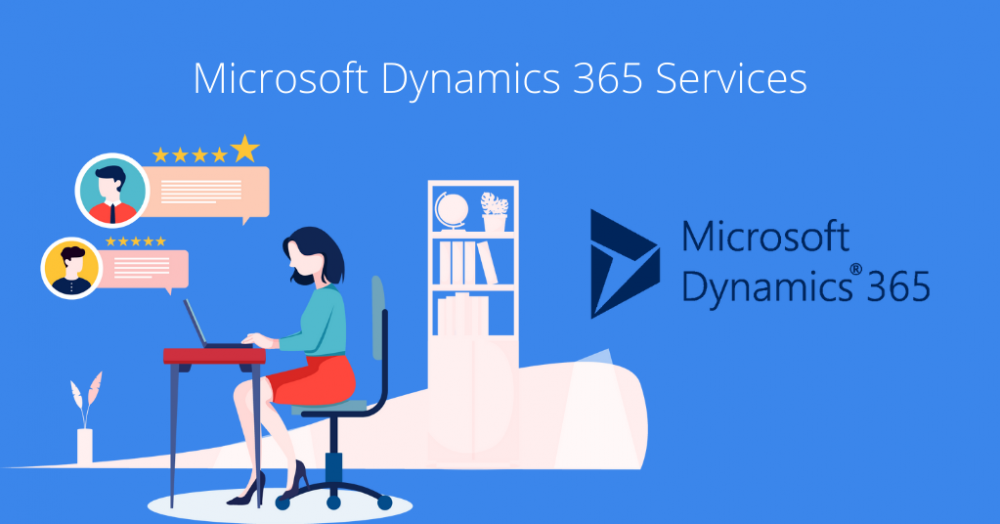Microsoft Dynamic CRM is a popular term right now, and it has a bright future ahead of it! It has made steady progress and has risen to the top of the customer relationship management (CRM) field. Microsoft is putting a greater emphasis on artificial intelligence, machine learning, and cloud computing, among other things. Microsoft Dynamics 365 CRM is an interconnected, data-driven, adaptable, and flexible software solution that can be tailored to meet the specific needs of your company’s operations. It gives meaningful insights to your advertising, marketing, and customer support teams, allowing them to better manage customer relationships as a result of the data.
As far as customer relationship management software is concerned, the future has here – at least in the realm of CRM software, which is among the fastest-growing categories of corporate software. We are approaching the era of intelligent, integrated customer relationship management, and the future of CRM is even more promising. Customer relationship management (CRM) is being used by sales and marketing teams across all industries, from small businesses to multinational enterprises. CRM is enabling sales and marketing teams to provide better customer experiences, recruit and keep customers, and get new customer-centric insights that are transforming their organizations.
The integration of Microsoft Dynamics 365 services solutions has also led to the firm’s success in other goods, according to the company. Businesses are on the lookout for customer relationship management software, and their preference for Microsoft is clear. Microsoft intends to incorporate artificial intelligence into its customer relationship management system in the future. The following are some of the characteristics that distinguish Microsoft CRM from its competitors:
- Microsoft CRM integration with other Microsoft applications provides a wide range of advantages to customers.
- Inbuilt in Microsoft CRM, the LinkedIn Sales Navigator and Assistant help salespeople increase their productivity and efficiency.
- CRM’s deployment choices and flexible architecture may be tailored to fit the specific requirements of each organization.
- CRM has risen to the top of the user satisfaction rankings because of its user-friendly design.
Customer Intelligence will be the most important thing in CRM
Customers are changing profoundly, and this shift goes beyond basic demographic shifts. When it comes to selecting who and why to purchase from one form or another, as well as when they buy, there has been a shift in how all customer groups across Business-to-Business (B2B) and Business-to-Consumer (B2C) markets make their decisions. That information must first be gathered, which is where customer relationship management software comes in.
When it comes to marketing data, insights, and customer-centric information, the more successful every marketing approach and plan is, the better they are. Insights and knowledge about customers are used to build marketing strategies that result in improved customer experiences. Satisfied customer experiences foster trust, encourage buybacks, foster loyalty, and result in better lifetime customer values.
It is only when marketing departments understand what consumers want, why they expect it, and how to offer goods or services that surpass customer expectations that this chain reaction of increased sales can begin.
What is the difference between Microsoft Dynamics CRM and Microsoft Dynamics 365?
The digital revolution, as well as the expectations of the contemporary consumer as a consequence, have radically altered the manner in which companies interact with prospects and customers. To provide smooth and intuitive interactions with businesses, personalization, agility, and proactive communication are essential components of the process.
Dynamics 365 enables businesses to provide ideal customer and user experiences via the use of the most up-to-date, cutting-edge, intuitive, and simple-to-use functionality.
Microsoft’s Dynamics 365 package includes both CRM and ERP capabilities, allowing businesses to manage all of their front-office processes from a single, unified platform hosted in the Azure cloud environment. Machine learning, virtual agents, and artificial intelligence capabilities are included in Dynamics 365 to assist with decision-making and to decrease unnecessary administrative or repetitive chores.
What can Microsoft Dynamics CRM Services offer?
All of your applications are in one convenient location
Dynamics 365 is designed to be simple, requiring simply the addition of individual applications that may be used alone or in conjunction with one another. The system is capable of developing a solution that meets your requirements. When your needs change, you must add the apps that will assist you in growing your business.
Improved awareness of the customer
When any client data is combined, Dynamics 365 provides a comprehensive view of the customer’s purchasing history. Personalize the customer experience while also measuring and tracking the health of client connections. You may also utilize pre-built KPIs to have a better understanding of the customer journey and receive precise real-time information.
Mobility
Savings and expenditures are the most important considerations, and having an operating cost as well as a subscription model is significantly more flexible than having capital costs in most cases. The cost of this has the potential to be far lower since you may purchase exactly what you need rather than paying for a whole package. Dynamics 365 may also help you save money by removing the need to run your own data center and servers, which can help you save money.
